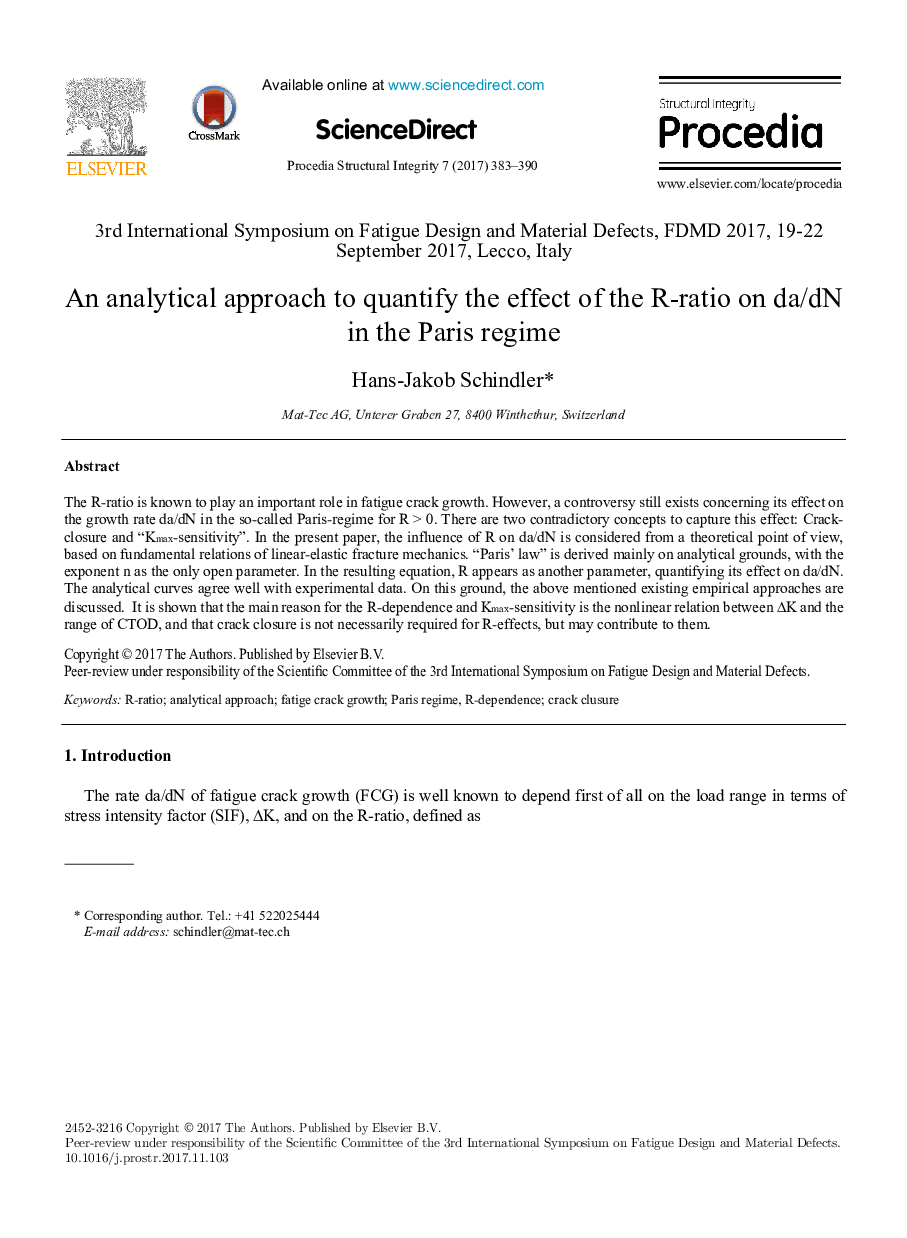| Article ID | Journal | Published Year | Pages | File Type |
|---|---|---|---|---|
| 7954935 | Procedia Structural Integrity | 2017 | 8 Pages |
Abstract
The R-ratio is known to play an important role in fatigue crack growth. However, a controversy still exists concerning its effect on the growth rate da/dN in the so-called Paris-regime for R > 0. There are two contradictory concepts to capture this effect: Crack-closure and “Kmax-sensitivity”. In the present paper, the influence of R on da/dN is considered from a theoretical point of view, based on fundamental relations of linear-elastic fracture mechanics. “Paris' law” is derived mainly on analytical grounds, with the exponent n as the only open parameter. In the resulting equation, R appears as another parameter, quantifying its effect on da/dN. The analytical curves agree well with experimental data. On this ground, the above mentioned existing empirical approaches are discussed. It is shown that the main reason for the R-dependence and Kmax-sensitivity is the nonlinear relation between ÎK and the range of CTOD, and that crack closure is not necessarily required for R-effects, but may contribute to them.
Keywords
Related Topics
Physical Sciences and Engineering
Materials Science
Materials Chemistry
Authors
Hans-Jakob Schindler,
